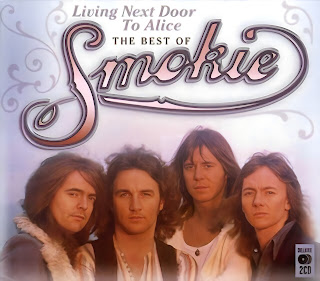Diana Ross & the Supremes: Two of Rock & Roll Hall of Fame 500 Songs that Shaped Rock & Roll
Origin: Detroit, Michigan, US.
Genres: R&B, soul, pop, doo-wop, disco
The original members of The Supremes - Florence Ballard, Mary Wilson, Diana Ross, and Betty McGlown - were Motown's most commercially successful act, scoring 12 number-one singles on the American music chart.
Billboard ranked the Supremes number 17 on the Hot 100 Artists of All Time. Two of their hits - "Stop! In the Name of Love" and "You Can't Hurry Love" - are among the Rock and Roll of Fame's 500 Songs that Shaped Rock & Roll.
Partnered with the songwriting/production team Holland-Dozier-Holland(the Supremes) topped the Billboard pop chart ten times.Allmusic review of the Supremes
Single: The Supremes
Album: More Hits by the Supremes
B-side: I'm in Love Again
Released: February 8, 1965
Genre: Pop, R&B, soul
Label: Motown
Songwriters: Holland–Dozier–Holland
"Stop! In the Name of Love" by the Supremes was written and produced by Motown's central production team, Holland–Dozier–Holland. Billboard magazine named the song 38 on its list of 100 Greatest Girl Group Songs of All Time.
In 2001, "Stop! In the Name of Love" was inducted into the Grammy Hall of Fame. Rolling Stone ranked the track number 254 on its 500 Greatest Songs of All Time list. It's one of two Supremes' hits in the Rock & Roll Hall of Fame's "500 Songs that Shaped Rock & Roll.
 |
| l-r: Lamont Dozier, Eddie and Bryan Holland |
Lamont Dozier and brothers Brian and Eddie Holland wrote and produced songs that shaped the Motown sound in the 1960s. They crafted 10 of the Supremes' 12 US number 1 singles, including "Stop! In the Name of Love" and "You Can't Hurry Love."
 |
| The Supremes |
The group's choreography for "Stop! In the Name of Love was created when the Supremes toured Europe with other Motown acts. At the first gig, a TV special hosted by Dusty Springfield, The Temptations group member Paul Williams suggested "talk-to-the-hand" gestures. They used them on the show and in subsequent performances.
Single: The Supremes
Album: The Supremes A' Go-Go
B-side: Put Yourself in My Place
Released: July 25, 1966
Genre: Pop, soul, R&B, Motown sound
Songwriters: Holland–Dozier–Holland
"You Can't Hurry Love" by the Supremes was the second single released from their 1966 album The Supremes A' Go-Go. The song topped Billboard's Hot 100 and made the Top 5 in the UK. Phil Collins' cover of the track 16 years later reached number 1 on the UK Singles Chart and 10 on Billboard's Hot 100.
Billboard ranked the song number 19 on its list of the 100 Greatest Girl Group Songs of All Time. It's one of two Supremes' hits counted among the Rock and Roll Hall of Fame's 500 Songs that Shaped Rock and Roll.
"You Can't Hurry Love" was based on a gospel song entitled "You Can't Hurry God." Lamont Dozier recalled in the book 1000 UK #1 Hits: "We were trying to reconstruct 'Come See About Me,' and somehow it turned into 'You Can't Hurry Love.' It was basically a gospel feel we were after."
The track was the first of a second string of consecutive Billboard chart-toppers for the Supremes. At the end of 1964 and into 1965, they charted five straight Number 1s. In 1966, starting with "You Can't Hurry Love," they charted four more.
Phil Collins
Phil Collins covered "You Can't Hurry Love" in 1982 on his album Hello, I Must Be Going. He inscribed "Motown, we salute you" on the sleeve of the LP. He explained to Mojo magazine in February 2009 that he covered this track as "a tribute to Motown."
...he was being respectful because heloved the song and he loved Motown.Lamont Dozier about Phil Collins
The song reached number 10 on Billboard's Hot 100 and topped the UK music chart. His version was the theme for the 1988 film of the same name. Collins' black-and-white video showing three Phil Collinses standing in a line was a homage to The Supremes.
Lamont Dozier said of Phil Collins' version, "I think he was being respectful because he loved the song and he loved Motown. He had his own interpretation and his own style. I thought it was well done."








Comments
Post a Comment